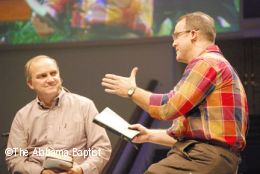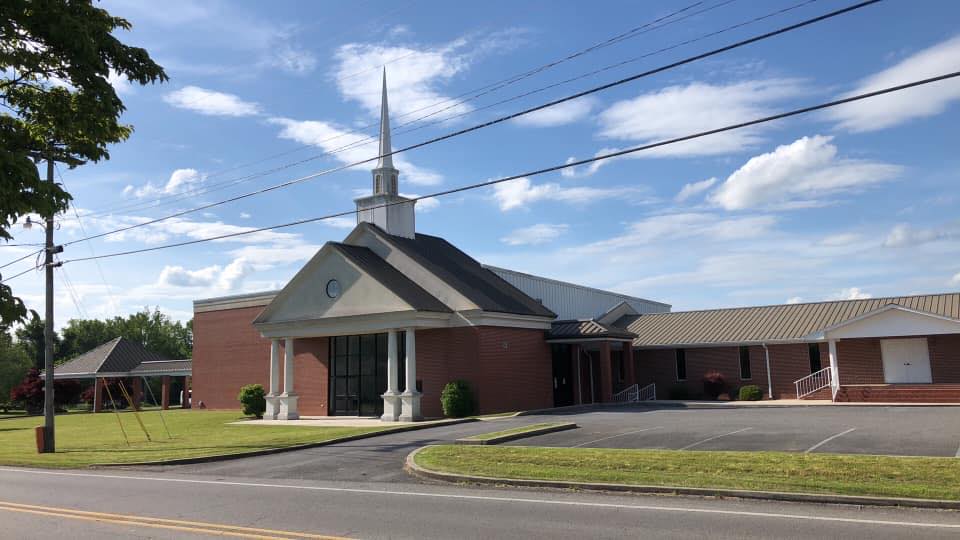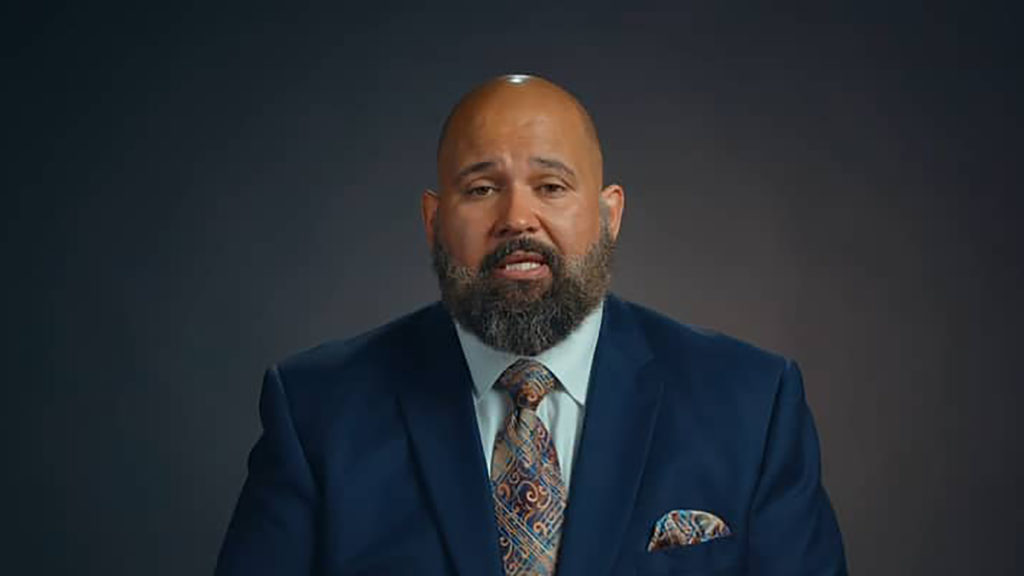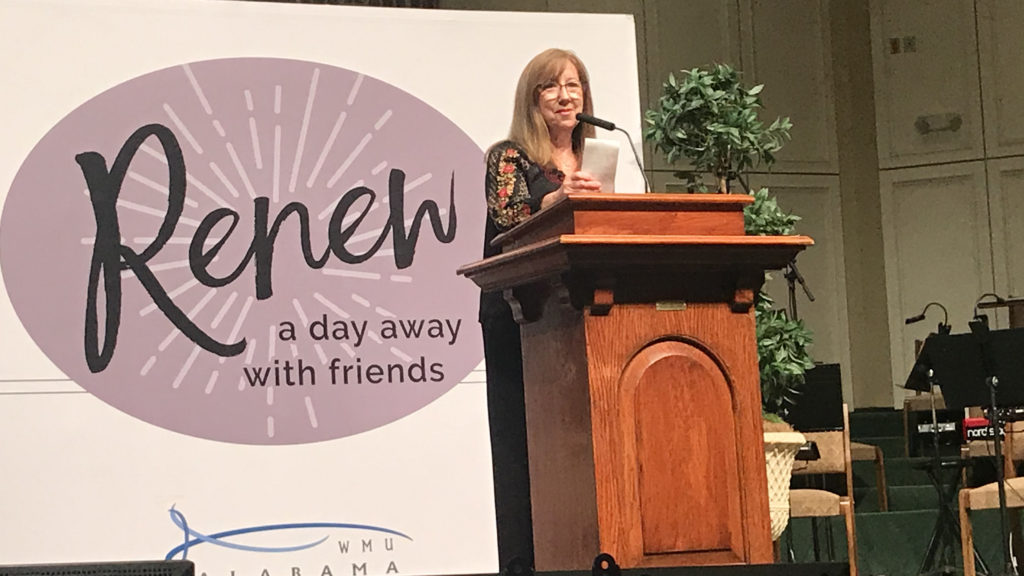A movement of God — a true revival — is what Alabama Baptist Pastors Conference leaders anticipate from their preparation and execution of the Nov. 14 annual meeting of pastors.
Held at Dauphin Way Baptist Church, Mobile, prior to the Alabama Baptist State Convention annual meeting, participants in the pastors conference heard a full day of messages outlining the need, as well as some how-tos, for revival.
“It has been the cry of my heart for a long time to experience what we experienced [at the pastors conference] … a movement among preachers,” said John Copeland, president of the pastors conference and pastor of First Baptist Church, Fulton. “It has been incredible to watch God put this conference together.”
From a lesson on directed prayer times (see story, page 13) to testimonies of what a movement of God looks like today, pastors had the opportunity to experience a day of personal spiritual renewal and commit to continue in that vein following the event. The music even created an atmosphere for the day’s purpose as singer/songwriter Josh Davis used the piano and acoustic guitar to lead the congregation in worship.
Davis is founder and president of Proskuneo Ministries, a faith-based music ministry that seeks to unite cultures in worship.
Copeland said, “My prayer has been from day one that we would leave this meeting … revived, that we will go back to our churches and God will carry that revival through us.
“I hope your heart has been touched … that you are different than when you came,” he said at the conclusion of the conference.
Clay Crum, pastor of Spring Hill South Baptist Church in Crenshaw County, spontaneously shared as the conference was closing that the experience had changed him.
“I have been touched by this meeting more than anything else and I almost didn’t come,” he said. “If you leave this place with just more knowledge of what you learned today, you wasted your time, but if you leave this place with a burning in your heart to truly see … a change across Alabama, across America … [then you will be different].”
Byron Paulus, executive director of Life Action Ministries, gave a similar challenge to pastors during the concluding session.
With help from Jamison Work, senior pastor of Candies Creek Baptist Church, Charleston, Tenn., and Bill Elliff, pastor of The Summit Church, Little Rock, Ark., Paulus explained what a movement of God looks like. The three speakers also provided current examples and gave those in attendance an opportunity to hear from God through a public verbal commitment to seek revival as well as a time of prayer for God to speak to their hearts.
“God has given me such a burden and passion for revival,” Paulus said. “It is all that comes out of me. I bleed it.
“For me and my walk with God, my greatest need is not to hear more truth. My greatest need is to learn to obey the truth I already have,” he said. “It is what we walk, not what we preach, not what we talk.
Outlining six characteristics of a movement of God, Paulus said, “I don’t believe Pentecost is going to appear again like in Acts 2, but I believe there are echoes of Pentecost.”
1. A movement begins by not moving.
“They were praying, fellowshipping in the word of God, reflecting on the cross of Jesus Christ,” he said of those gathered in the upper room in Acts 2. “Pray, fast, seek God, then let God tell you His plan.”
2. A movement is experienced before it is exported.
“Revival spreads on the wings of testimonies … [but] we want to export the gospel before we ever experience it,” he said.
3. A movement is messy.
“Some will say it is emotional,” Paulus noted.
4. A movement is Word-driven.
“Peter’s words were 40 percent quoting the Old Testament,” he said. “How many times have our messages been 40 percent quoting the Bible?”
5. A movement is Christ-exalting.
“Authentic movements of God are Christ-exalting,” he said.
6. A movement is filled with awe.
“We are going to be awed at what God can do. It’s all theory in a sense until even in our day, we hear the stories.”
Work shared his church’s story of how a movement of God changed the individuals in the congregation and how “it was as though the manifestation of God exploded in our church.”
“As God began moving … an 11-day meeting turned out to be a six-weeklong meeting,” he said, noting much of the movement came through people confessing sins to each other, church leaders confessing corporate sins such as prayerlessness and broken family bonds being restored. “There were sparks of revival. Our people were so excited to share what God was doing.”
But not everyone was excited, Work noted. “As people begin to hear … that we were having these hours-long sessions, and many of those in confession, the typical thing that went through the community was that they are just airing their dirty laundry. … [And] there were [some] in our congregation on the fringe who are afraid of what they are seeing God doing, and we are actually having people leave. They did not understand what God was doing in someone else’s life and it breaks my heart.”
Still the work done in church members’ lives has been “overwhelming and staggering,” Work said. “He made Himself known in our lives like we had never known before.”
Elliff described the movement of God at his church earlier this year as “sweet.”
“It was … the way the church is supposed to be, the way you’ve always longed for it to be,” he said. “People’s needs are being met because others are obeying God as He leads them. Hurts are being healed.”
Church members there also confessed sins to each other and mended broken relationships.
“That’s what we need — the normal work of the church is not what we need,” Elliff said. “We need the manifest presence of God.
“But what do we do? What’s the next step?”
Reading from Psalm 85, Elliff said, “First the psalmist says we need to cry out because no one else can save us. … We need a course correction that only a national movement of revival can bring.
“God is just waiting for us,” he said. “He is waiting for us to get desperate enough to know only He can save us.”
Second “we cry out because He can save us,” Elliff said. “What we need is God’s glory to come. What we need is not just a moment of glory.
“When revival comes, God starts doing things in the land,” he said, noting that not only will the Church be revived but also the lost will be awakened.
In other business, new pastors conference officers were elected:
• President, Mike Cassity, pastor of Ridgecrest Baptist Church, Montgomery
• President-elect, Fred Lackey, pastor of Westside Baptist Church, Jasper
• First vice president, Kevin Blackwell, pastor of Valley Creek Baptist Church, Hueytown
• Treasurer, Mark Smith, pastor of Eastside Baptist Church, Birmingham
(Correspondents Traci C. Gyan and Daniela Werner contributed)






Share with others: